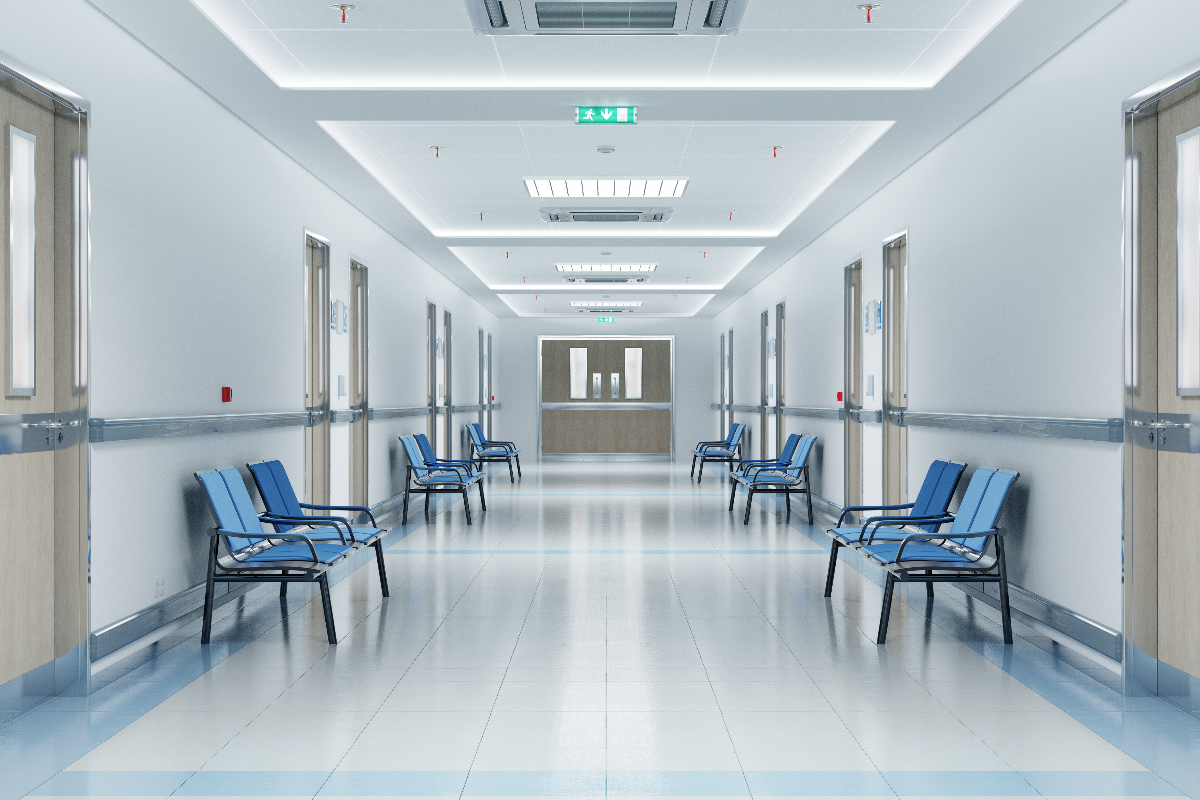The towering, sterile hospital buildings – centers of hope, despair, and everything in between. For
generations, they have been symbols of healing and refuge. Yet, the winds of change are stirring, and like
office spaces that are being reborn as residences, hospitals too may be on the brink of a dramatic
metamorphosis.
Pause for a moment and consider this: What if the traditional concept of a hospital was outdated? At its
core, who truly wishes to be confined within those daunting walls? The environment within isn’t just
emotionally taxing, but also a cauldron of various pathogens.
Envision a scenario where you could receive medical care in a more personalized, secluded setting like a
warehouse. A place where your loved ones can be by your side, away from the crowded hospital wards
and far from the clutches of lurking bacteria and viruses. In this utopian healthcare setup, bulky human
staff could be replaced by precision-driven machines and robots, ever vigilant, always ready to assist,
even perform surgeries. This isn’t mere fantasy; it’s a possibility on the horizon, promising drastically
reduced insurance costs and a medical experience unparalleled in comfort and efficiency.
Recent reports, particularly concerning Medicare and Medicaid, spotlight a bitter truth: The current
system, far from being a beacon of healthcare, often funnels expenses from patients to line the pockets
of insurance companies. The prevailing structure isn’t just flawed; it’s unsustainable. And like every
outdated model, it’s ripe for disruption. As advancements in technology and biohacking increasingly
encroach upon the medical sphere, we might see hospitals needing to reinvent or repurpose their
monumental real estate holdings.
Given their prime locations, these vast tracts of hospital-owned land present an intriguing question. In
an age where transportation is continuously evolving, do we still need healthcare facilities in such prime
locations? The sheer expanse of these lands could give birth to innovative real estate projects, new-age
communities, or even entire cities. Repurposing these areas could spur urban productivity like never
before, turning dormant spaces into bustling hubs of life.
Beyond the bricks and mortar, the ultimate beneficiaries of this transformation will be us – the patients.
A future where individuals are empowered with knowledge and tools to understand and care for their
bodies without hospital interventions isn’t just a distant dream. It beckons us, promising reduced
medical expenses and enhanced health outcomes. The age-old adage – prevention is better than cure –
has never been more relevant.

The paradigm shift is evident: Home insurance companies are ideally poised to champion preventive
over curative medicine, slashing their operational costs. Hospitals of the future may well be sleeker,
safer, and perfectly aligned with the evolving demands and aspirations of their clientele.
The writing is on the wall. With cutting-edge technology at our fingertips, the time is ripe to challenge
norms and redefine healthcare. Hospitals, as we know them, must evolve or risk obsolescence. The call
to action is clear: Embrace change, harness technology, and let’s sculpt a future where healthcare is not
just about healing but thriving.


